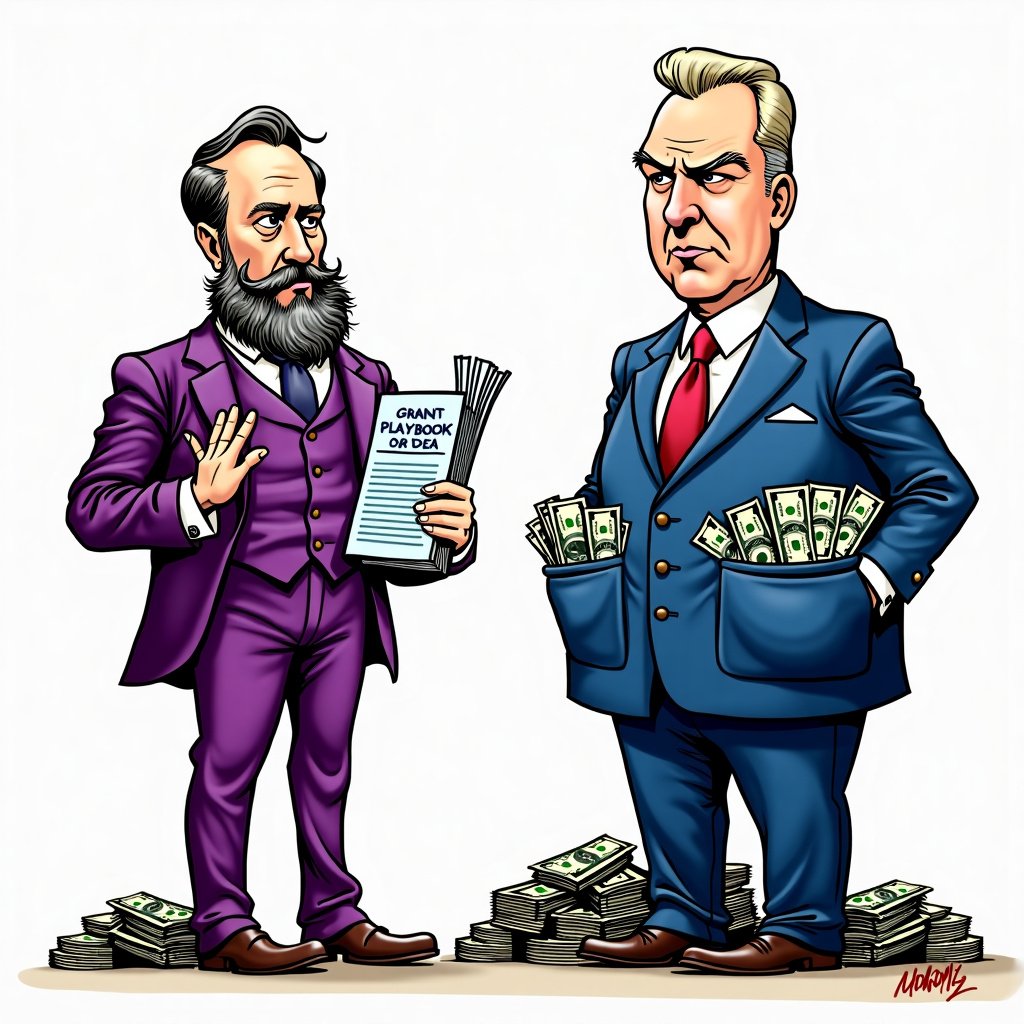Ulysses S. Grant—an American hero who had fewer scandals in his sudden leap to the presidency than Congress has pork in its spending bills—isn’t exactly the guy you’d look to on the topic of fiscal transparency if you believed everything you heard. Yet, anyone who’s managed to balance war strategies and administration hiccups probably knew a thing or two about honest, efficient government spending compared to some modern-day bureaucrats who treat taxpayer dollars like play money.
Now, let’s be real, Grant’s administration wasn’t perfect (Gilded Age politics and buddies, anyone?), but isn’t it funny that in 2023, America’s fiscal track record often looks like a college freshman’s overdrawn bank account? And who’s shouting for change? Conservatives, naturally—those sticklers for accountability, private enterprise, and, heaven forbid, not handing out blank checks like they’re going out of style!
Consider Grant’s presidency: he set up the Department of Justice, which could’ve been a watchdog for fiscal shenanigans. Now compare that to the progressive playbook—where spending bills collect earmarks faster than a snowball rolling downhill. No wonder conservatives are all about more transparency in government spending! They’re fed up with proposals that label never-ending bureaucracy and wealth shuffling as ‘progress.’
The Conservative Vision: Freedom with Fiscal Responsibility
The conservative approach champions freedom within fiscal responsibility—not government playing gatekeeper with taxpayer money. Think about shrinking the IRS instead of fattening up loophole-riddled federal budgets. That’s real courage, wrapped up in a red-state bow! Yet progressives seem to think “big government” equals “progress,” missing how bloated budgets and top-down control are about as efficient as a square wheel.
Conservative vs. Progressive Approach to Government Spending
| Conservative Approach | Progressive Approach |
|---|---|
| Fiscal responsibility | Increased spending |
| Smaller government | Expanded bureaucracy |
| Local solutions | Federal control |
| Tax reduction | Tax increases |
Picture Grant trudging through Washington, jaw dropping at proposals like the Humungous Multi-Trillion-Dollar Bills of recent years. Where’s the clarity? How much actually helps working-class taxpayers, and how much goes to “study” some obscure issue? Those “study fundings” sound like a bad joke straight out of a post-Gilded Age reform manual—proving conservatives are always ready to call out unchecked fiscal nonsense.
Real Fiscal Responsibility: Less Washington, More Local Solutions
True fiscal responsibility, driven by conservative thinking, means less Washington control and more local solutions like Grant’s “thoughtful-but-not-free-market” approach. Nothing against helping folks financially, but it needs long-term fixes over Uncle Sam’s cash-soaked quick fixes. Liberals claim an ever-growing government wallet fuels prosperity. But guess what else grows? TAXES—and they’re coming for hard-working middle Americans, make no mistake!
Compare that to the conservative vision: an America that values independence, upholds patriotic ideals, and focuses on implementing policies that actually work for the people, not just the government.
Table of Contents
- The Conservative Vision: Freedom with Fiscal Responsibility
- Real Fiscal Responsibility: Less Washington, More Local Solutions






